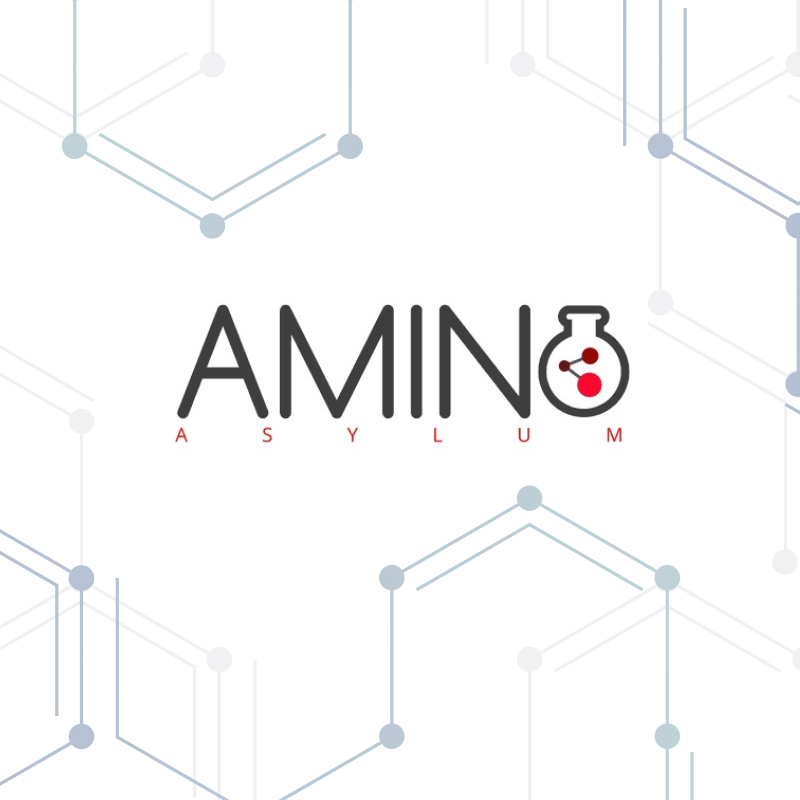3 Best Peptide Companies To Buy From Online

Peptides have revolutionized the fields of medicine, research, and wellness in recent years. These powerful amino acid chains offer a wide range of potential benefits, from enhancing athletic performance to supporting overall health.
As interest in peptides continues to grow, it's crucial to understand the various aspects of obtaining, using, and storing these compounds safely and effectively.
Let's jump right into our favorites.
Our Top Rated Companies Ranked
1. Amino Asylum
Amino Asylum is one of the most popular companies for research compounds like peptides and SARMS.
Reviews online have been overwhelmingly positive and it's our #1 pick for best place to buy peptides.
See our full review here
Or go here to see their list of products.

Understanding Peptides and Their Applications
Peptides are short chains of amino acids, the building blocks of proteins. Unlike proteins, which can contain hundreds or thousands of amino acids, peptides typically consist of 2 to 50 amino acids. This smaller size allows them to be more easily absorbed by the body and to target specific biological processes with precision.
The applications of peptides are vast and diverse. In medicine, they're used to treat conditions ranging from diabetes to cancer. In research, they serve as valuable tools for studying cellular functions and developing new therapies. And in the wellness industry, peptides are gaining popularity for their potential to enhance muscle growth, improve skin health, and boost cognitive function.
Bioactive peptides are of particular interest due to their ability to influence physiological processes in the body. These peptides can interact with specific receptors or enzymes, triggering various biological responses. For example, some peptides can stimulate the production of growth hormone, while others may help regulate blood pressure or improve insulin sensitivity.
As the field of peptide synthesis advances, researchers are discovering new peptides with promising therapeutic potential. This has led to a surge in demand for high-quality peptides from both scientific institutions and individuals seeking to explore their benefits.
Navigating the Peptide Marketplace
With the growing interest in peptides, a complex marketplace has emerged. Peptide suppliers, online peptide stores, and peptide wholesalers offer a wide range of products to meet diverse needs. However, navigating this landscape can be challenging, especially for those new to the world of peptides.
When searching for peptides, it's essential to consider several factors:
- Reputation of the supplier
- Quality and purity of the peptides
- Pricing and value for money
- Customer service and support
- Shipping and handling practices
USA peptides are often sought after due to the stringent regulations and quality control measures in place. However, reputable suppliers can be found worldwide, and many offer international shipping to meet global demand.
Peptide marketplaces and peptide deals can be tempting, but it's crucial to prioritize quality over price. Low-cost peptides may be indicative of poor quality or even counterfeit products, which can be ineffective at best and dangerous at worst.
Ensuring Peptide Quality and Safety
The quality and safety of peptides are paramount, especially when they're intended for research or personal use. Reputable peptide manufacturers employ rigorous peptide quality control measures to ensure their products meet high standards.
Key aspects of peptide quality include:
- Purity: High-grade peptides should have a purity level of 95% or higher.
- Authenticity: The peptide should match its stated sequence and structure.
- Stability: Properly manufactured peptides should remain stable under recommended storage conditions.
- Sterility: For injectable peptides, sterility is crucial to prevent contamination.
Peptide purity tests and peptide batch testing are essential steps in the quality control process. These tests help verify the identity, purity, and potency of each batch of peptides produced. Peptide analysis techniques such as high-performance liquid chromatography (HPLC) and mass spectrometry are commonly used to assess peptide quality.
Peptide authentication is another critical aspect of ensuring safety and efficacy. Some suppliers provide certificates of analysis (COAs) that detail the results of quality testing for each batch. These documents can offer peace of mind to buyers and researchers alike.
Proper Handling and Storage of Peptides
Once you've obtained high-quality peptides, proper handling and storage are essential to maintain their integrity and effectiveness. Most peptides are sensitive to temperature, light, and humidity, so careful attention to storage conditions is crucial.
Peptide storage guidelines typically recommend:
1. Storing lyophilized (freeze-dried) peptides at -20°C or lower
2. Keeping reconstituted peptides refrigerated at 2-8°C for short-term use
3. Avoiding repeated freeze-thaw cycles
4. Protecting peptides from direct light exposure
Peptide vials are often made of glass or high-quality plastic to protect the contents from environmental factors. When working with peptides, it's important to use sterile techniques to prevent contamination.
Peptide reconstitution is a critical step when preparing peptides for use. This process involves dissolving the lyophilized peptide in an appropriate solvent, typically sterile water or a buffer solution. Proper reconstitution ensures the peptide maintains its structure and activity.
Peptide solutions should be prepared carefully, following the manufacturer's instructions. It's often recommended to use low-protein binding tubes and tips to prevent loss of peptide during handling.
The Role of Peptide Clinics and Professional Guidance
For those interested in exploring the potential benefits of peptides for personal use, peptide clinics can provide valuable guidance and supervision. These specialized clinics offer consultations with healthcare professionals who are knowledgeable about peptide therapies.
Peptide certificates are sometimes issued by clinics or healthcare providers to indicate that an individual has undergone proper education and training in peptide use. This can be particularly important for those administering peptides in a clinical or wellness setting.
It's important to note that while many peptides are used for research purposes, some are approved for medical use and must be prescribed by a healthcare professional. Always consult with a qualified medical practitioner before beginning any peptide regimen.
Navigating Legal and Ethical Considerations
Peptide legality is a complex issue that varies depending on the specific peptide, its intended use, and the jurisdiction in question. In many countries, peptides are considered research chemicals and are not approved for human consumption unless specifically regulated as pharmaceuticals.
It's crucial to understand the legal status of peptides in your area and to use them only for their intended purposes. Some peptides may be classified as controlled substances or require a prescription, while others may be freely available for research purposes.
Ethical considerations also come into play when dealing with peptides. Researchers and individuals alike should prioritize safety, transparency, and responsible use. This includes adhering to proper protocols, maintaining accurate records, and respecting intellectual property rights.
The Future of Peptide Research and Development
The field of peptide research is rapidly evolving, with new discoveries and applications emerging regularly. Advances in peptide synthesis techniques are making it possible to create more complex and stable peptides, opening up new possibilities for therapeutic interventions.
Some exciting areas of peptide research include:
1. Targeted drug delivery systems using peptides as carriers
2. Peptide-based vaccines for infectious diseases and cancer
3. Neuroprotective peptides for treating neurodegenerative disorders
4. Antimicrobial peptides to combat antibiotic-resistant bacteria
As research progresses, we can expect to see more peptide-based treatments entering clinical trials and eventually reaching the market. This ongoing development underscores the importance of staying informed about the latest advancements in peptide science.
Conclusion
The world of peptides offers exciting possibilities for research, medicine, and personal wellness. By understanding the intricacies of peptide quality, safety, and proper use, individuals and researchers can harness the potential of these powerful compounds responsibly and effectively.
As the peptide market continues to grow, it's crucial to remain vigilant about sourcing high-quality products from reputable suppliers. Whether you're a researcher exploring new therapeutic avenues or an individual interested in the potential benefits of peptides, prioritizing safety, quality, and ethical considerations will help ensure the best possible outcomes.
FAQ
What's the difference between peptides and proteins?
Peptides are shorter chains of amino acids (typically 2-50), while proteins are longer chains (50+). Peptides are generally easier for the body to absorb and can target specific functions more precisely.
Are peptides safe to use?
When sourced from reputable suppliers and used as directed, many peptides are considered safe. However, it's crucial to consult with a healthcare professional before using any peptide, especially for therapeutic purposes.
How long do peptides typically last?
The peptide shelf life varies depending on the specific peptide and storage conditions. Generally, lyophilized peptides can last 2-5 years when stored properly, while reconstituted peptides may only last a few weeks to months.
